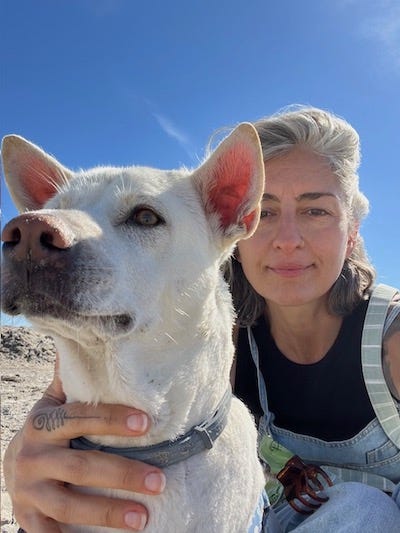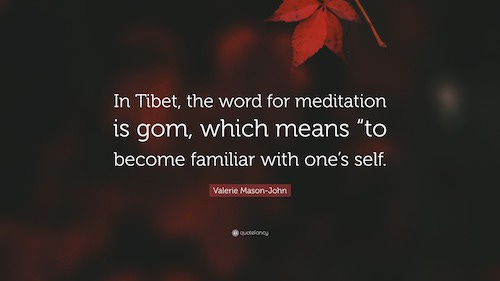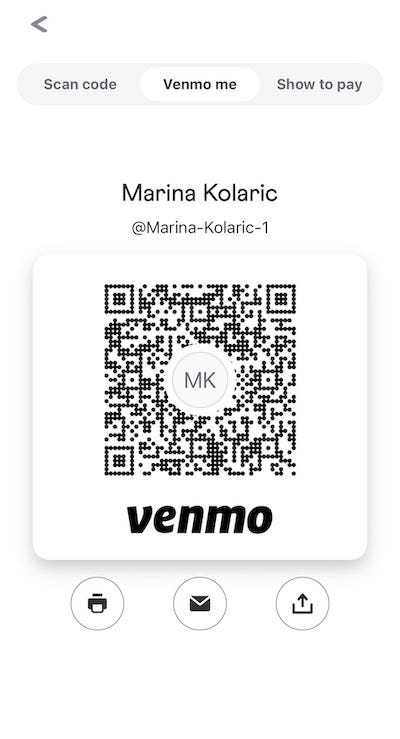“Today you are You, that is truer than true. There is no one alive who is Youer than You.” ~ Dr. Seuss
Many of us view, understand, experience and live sobriety differently. There are those who are completely abstinent from all substances that are mind altering (some even taking it as far as abstaining from caffeine). Then, there are those who quit booze, but they still use cannabis, for example, as it was never their drug of choice, or simply for medical purposes. Similarly, there are those who drink moderately, but they are no longer using heroine or some other “hard drug”. There are those extremes who even consider getting off their treatment for serious mental health conditions, such as bipolar disorder, just to name one. Some of us are fully abstinent and others may be managing their use of substances through moderation. Overall, there is a variety of approaches to sobriety and recovery, for sure. And, all we can really attest to being the best solution, is what is drawn from our own experience and what works for us personally. That being said, I will share here my personal experience and I am asking you to remember that it is by no means certain that yours will be identical, nor that you should be taking mine as recommendation, or suggestion even. You do you. And only you know what works for you.
I got sober in 2014 with a support of AA (Alcoholics Anonymous). What I mostly benefited from was the community - without it, I don’t know how and if I would have made it. AA is known for strongly enforcing the rule that sobriety exclusively means full abstinence from all mind altering substances, although it focuses specifically on recovery from alcoholism. An interesting fact about this is that cigarettes, caffeine, and sugar are not considered drugs in this case and are allowed, sometimes even encouraged and freely offered, at many 12-step meetings. I remember in my first month of being sober, a guy was celebrating his first year of sobriety and was taking a cake in a meeting, and, as it is the custom, he shared about his experience. Among other things, he shared that he had been using marihuana occasionally, for the past year, to help him sleep at night. Well, in AA that is not allowed, so his sobriety clock when from 1 year to 0 days after that share. I am not even sure if he showed up at meetings afterwards. I remember thinking that this was a bit radical, and I questioned (for myself) that stand. But, at the time, absolute abstinence worked for me.
I knew I could not manage my drinking, as moderation was rarely successful in the past - if ever - and it would always cause me a lot of obsession, anxiety, future tripping, shaming and stress. I also knew that if I was to drink even occasionally, the risk of me taking literally any drug would be significantly increased. So, I remained abstinent. And, I am happy I did. That way, I was able to deeply experience complete sobriety, build new habits and spiritual practices, strengthen the useful but forgotten ones, revisit my relationships, and work on recognizing and acknowledging my behavioral patterns, conditionings, habits, and emotional rollercoasters. I was finally able to feel my feelings as oppose to anesthetize them every time they would show up. If I am being completely honest, this was a tall order - it was a lengthy and uncomfortable process, to say the least - but it is possible and to me, it was rewarding and it brought tremendous personal growth.
Furthermore, I was one of those people who was on the “pink cloud” for about three months. Often also called the “honeymoon stage”, this is a phase many people experience in early recovery. It involves feelings of excitement and euphoria; the individual is usually overjoyed with their recovery, they feel super confident that they will remain sober in the future, and they practically feel invincible. As you may suspect, this overconfident feeling often brings people to a relapse or even just a total emotional meltdown and falling from the pink cloud, once their life takes its course, difficult things happen, or they simply start feeling their feelings. So, after about 90ish days of being basically high on life and sobriety, I fell hard and deep. I didn’t relapse but I was overly sensitive and often quite miserable. This was the time when I also started realizing that higher sensitivity and emotionality are a big part of my personality, and that it is very likely that I will keep on experiencing them throughout my life.
I had a similar experience to the pink cloud one when I was about 27 months sober, with the difference that after this experience I decided to “take a break” from sobriety. I never considered this to be a “relapse” as it involved a very conscious decision on my end, and not an accidental slip or a sudden deterioration. I felt I was doing so good that I was ready to not be sober again, and try exploring and experimenting with alcohol again. Well, it was a relapse after all. It lasted for about 3-4 months and very soon it became clear to me that I am not a “normal” drinker - I never was - and definitely cannot moderate and manage my drinking. Very soon, my drinking habits went back to what they used to be like in the past. So, I got back on the sobriety train - that was April 2017 - and I have been on it since (with no desire to ever get off again). However, sobriety and recovery, just like any other transformative journey in life, have their own course, which is in no way linear and progressive, but rather circular and spiral, chaotic at times, taking unexpected turns, bringing you into situations that may seem like the ones you faced already in the past but with a difference that you yourself are different each time and not the same person you were before. It is a liminal space - at least it has been for me, especially the early recovery - a waiting room between my past life and the very next that is coming, as if I was born again (and not as in born again Christian).
Since I first joined AA in 2014 until sometime in the second half of 2018, I, too, was of a belief that no substance - not even herbal and plant medicine - should I be using if I am considering being “clean”. I have realized that this, somewhat rigid and aged perspective, was mostly due to fear (and, of course somewhat due to my own conditioning). I was afraid that if I open the door to some other modalities, some other approaches, it would automatically mean that I am putting my recovery in jeopardy, that my risk of a relapse is higher, and that I will additionally be judged by the recovery community for that. Aside from being afraid, I also was not informed and educated enough to know of all the benefits of those other/alternative modalities. plus, they weren’t exactly as popular, encouraged and mainstream back then as they are today. Slowly, I was realizing that AA, despite the fact that it helped many people - me included - has very little to do with the modern understanding of addiction - a non-medical one - as well as the new treatments that have been developing, as the recovery space has greatly evolved since the “Big Book” of Alcoholics Anonymous was written back in 1939.
In 2019 I had a privilege of meeting as well as studying with Dr. Valerie Mason-John (Vimalasara) who is a writer, public speaker, and master trainer in the field of conflict transformation, leadership and mindfulness. They are also a dharma teacher, president of the international organization Buddhist Recovery Network, which promotes mindfulness and Buddhism as a complementary approach working with addiction, and the Co-Founder of the accredited program Mindfulness Based Addiction Recovery (MBAR), in which I have trained in. Vimalasara helped me shift my understanding of addiction from a very limiting and often pessimistic approach, to something much broader and much more compassionate and hopeful than the traditional medical model. Using mindfulness techniques and Buddhist principles, in not only working with recovery from addiction, but also as guidelines for more skillful and fulfilling life, was a game changer for me, personally and professionally.
As I was opening myself up to a different understanding of addiction and recovery, I was also learning of alternative treatments used in recovery - especially through the knowledge I gained during my year-long studies with Dr. Gabor Mate, a renowned addiction expert. I read Dr.Mate’s book In the Realm of Hungry Ghosts years ago, and since then I was resonating with his ideas and approaches to recovery. Naturally, when he started speaking of the benefits of psychedelic-assisted treatments in variety of medical conditions, mental health conditions, as well as in recovery from addiction and compulsive behaviors, my beliefs and thoughts about it started shifting. Plus, I was already doing so much of introspective work, therapy and personal growth that I was ready and open for these ideas.
Just like meditation, most of the plant medicine, and some of the synthetic drugs as well, can help to shift brain’s neuroplasticity - shifting the brain into a more open and plastic state. Basically, remodeling the brain - which happens every time we learn, grow and change our habits. Just like exercise and prescribed antidepressants can influence neuroplasticity, so can psychedelics. And, probably, with significantly less side effects (most often none) than prescribed antidepressants and anti-anxiety medications. As I was learning more about the use of psychedelics in therapeutic purposes, I was called more and more into the space in which I would be open in trying this approach, and I wasn’t feeling fear anymore. Following the work of Dr. Mate, I have learnt that when considering using psychedelics in therapeutic context the most relevant are two factors - set and setting. These can influence the effects of the psychedelics. Set means one’s mindset, a mental state that one is bringing into the experience, especially their expectations and intention. And the setting refers to the physical environment in which the experience happens - meaning that a person is safe and with a healer/practitioner who can hold them if they experience any discomfort and also help them integrate the experience afterwards.
“Psychedelics are illegal not because a loving government is concerned that you may jump out of a third-story window. Psychedelics are illegal because they dissolve opinion structures and culturally laid down models of behavior and information processing. They open you up to the possibility that everything you know is wrong.” ~ Terrence McKenna
I first used psychedelics long time ago, when I still wasn’t sober. I have taken LSD a few times, as well as magic mushrooms. However, I wasn’t ready nor open energetically for the higher wisdom that they can bring to us, and therefore, I wasn’t so drawn to them nor they left a significant mark on my experience. The first time I used psychedelics therapeutically was in my recovery about four years ago. I was microdosing with psilocybin for several months in 2019, mostly for anxiety and depression. The purpose of microdosing is for one to get the benefits of the psilocybin without actually taking enough quantity to get high or feel any strong sensations. I found it to be very useful, and after doing it for two cycles I took a break. I consulted with my Ayurvedic doctor and teacher, and we have decided that it would be best for me to stop taking it since I was feeling better. I did not think that it would be smart to continue with the use, get super comfortable with it, and then potentially start using it as a crutch in my recovery process. I was doing well for few years afterwards, but somewhere close to the end of 2021 when I was living in Bali I found myself in a very dark place where I was depressed and life didn’t make much sense. I decided to try working with the DMT (Dimethyltryptamine) taken from the Bufo toad - called 5-MeO-DMT - also “the toad”. This is a fast-acting psychedelic that, depending on the dose that is taken (usually inhaled), can dissolve one’s ego completely so a person becomes one with the whole universe and every single thing that surrounds them, or they can literally feel like they are dying (well, at least how I imagine the death might feel, as well what The Tibetan Book of Living and Dying suggests). It is the most profound and life changing experience I have ever had - the most intense too, and I don’t mean in a comfortable and pleasurable way. It feels almost like dying and being reborn. One thing is crucial here - if a psychedelic trip isn’t processed and integrated well with a trained and skilled healer/practitioner, it can leave one with confusion and no benefits as well as with very negative outcomes and afflicted mental states. This is, unfortunately, very common experience especially for those who go through this process without previously inquiring inside themselves about the purpose and the intention of doing this.
A few years have passed since this experience, and I started feeling depressed again earlier this year. Granted, I was in a very conflicted phase of my life, dealing with financial insecurity, and questioning my life purpose and soul wishes. After trying antidepressants for the first time in my life, and was taking them for six months, I have decided to stop and start microdosing with psilocybin instead. If you have found an antidepressant that works for you, and you feel like you are thriving on it, you are able to have actual feelings, and fully show up for your life - I am genuinely happy for you. However, that did not happen for me, and I won’t be choosing that route again. But, again, bare in mind that this is me, and I am not prescribing something here for the rest of you. I am simply sharing my own experience.
Today, I am happily microdosing with psilocybin. I am very involved in my recovery and I daily choose it. I feel it is time to update the old thinking that it is not really recovery if someone is using medicines or other substances to maintain their recovery. If someone chooses complete abstinence and it works for them, that is certainly something to be celebrated and admired. Still, we have to remember that this is not the absolute truth and the model that everyone in recovery has to follow. Whatever path brings one out of the suffering of an addiction, and takes them into a place where they are safe and thriving - is a good path. What would be helpful is if we were more supportive of individual choices that people make on their journey.
Your recovery is your own thing. It is very personal, intimate and subjective matter, and it should not be anyone else’s business how you conduct it. It is your personal journey and what matters is that is works for you, and for you only. It should not feel like you are being judged, criticized, or somehow excluded from a community for the choices you are making. At the same time, educate yourself about the things that are out there, talk to other like-minded people, choose a journey that speaks to you the most, and, above all, listen to your intuition when it comes to any choices you are making in your life and especially those around using any alternative methods for your recovery and mental health.
Good luck! And please reach out if you want to inquire more.
As always, I am grateful for your subscription! If you feel inspired or moved, if you feel seen or heard, or you find it relatable you can offer me a tip! PayPal me or Venmo me. You can also upgrade your subscription to a paid membership. Until next time!
Stay safe. Marina






